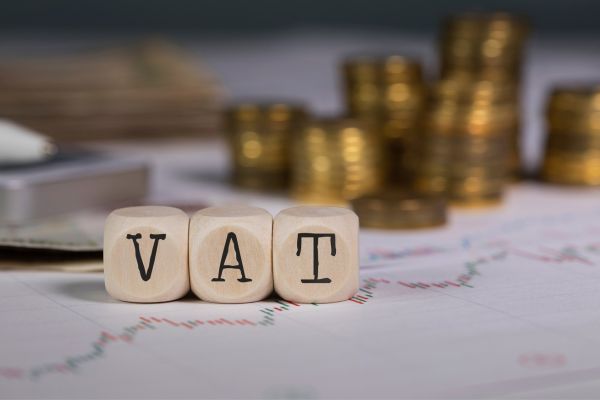
Value Added Tax (VAT) Compliance Services
Paying taxes on time is vitally important. Seems no-brainer? But staying tax-compliant is not

World-class education, state-of-the-art healthcare, hassle-free transportation, uncomplicated utility services, liberal policies, excellent infrastructure, hi-tech banking systems, exemplary policing, and flawless roads, we all want high-quality services no matter where we live, right? But there ain’t no such thing as a free lunch. All these things cost money. Running a country costs the earth. That’s where taxes come into the picture and help governments meet their expenditures. Every country’s government raises revenue to look after its massive population while fostering economic growth and development by imposing several taxes (directly or indirectly) on the public such as property levies, income taxes, and VAT. These taxes can be seen as sustainable sources of funding provided to governments for social programs and public investments. Fair enough! It’s next to impossible for the government to run the country without taxes. It’s our moral duty to pay taxes on time, fair and square! And top of all, we don’t want to pay hefty penalties or fines for non-compliance. Although there is no rocket science, staying tax compliant could not be as easy as you think, especially if you are doing business in a foreign country like UAE.
The United Arab Emirates is a federation of seven emirates, governed by autonomous emirates and local governments. And yes, there’s no federal income tax in the UAE, you heard that right. Neither do you have to pay income tax as an employee nor there is a system for corporate and inheritance taxes, among others. But that doesn’t mean that there are no taxes at all in the UAE. Individuals don’t have to pay taxes on their earnings. However, oil companies and foreign banks are liable to pay corporate tax, and some specific companies that deal in goods that are deemed by the government harmful to the health of humans or the environment also are required to pay excise tax. Value Added Tax is levied on almost every good and service consumed or used across the UAE. The tax system in the United Arab Emirates is full of surprises. You might need top sawyers with years of hands-on experience in the field to remain tax compliant in the UAE.
Know Value Added Tax (VAT)
Also known in some countries as a goods and services tax (GST), value-added tax (VAT), is a kind of tax that is assessed incrementally. It is levied on the price of a product or service at every step of the supply chain, from production to distribution to sale to the end consumer. Until 1st January 2018, the UAE was a VAT-free nation as most of the revenues have been generated from oil sales to other countries. But later the UAE decided to introduce other forms of revenue such as VAT with an aim to reduce their dependence on this source and other hydrocarbons. Today VAT is applicable to all seven emirates of the nation at the rate of 5 percent which is levied at the point of sale. Businesses collect and atone for the tax on behalf of the government. A business house pays the government the tax that it collects from its customers. At the same time, it receives a refund from the government on tax that it has paid to its suppliers. Foreign businesses also qualify to recover the VAT they incur when visiting the UAE. Not only businesses in UAE but tourists as well pay VAT at the point of sale.

VAT Registration: Criteria & Process
UAE imposes 5% VAT on tax-registered businesses. This clearly means a business is required to be registered for VAT if their taxable supplies and imports surpass the mandatory registration threshold of AED 375,000. In addition, a business may opt to register for VAT voluntarily if their supplies and imports are less than the mandatory registration threshold, but outreach a voluntary registration threshold of AED 187,500. Similarly, they may register voluntarily if their expenses leave the voluntary registration threshold behind. This latter opportunity of voluntary registration is intended to empower start-up businesses with no turnover to register for VAT.
VAT in the UAE is overseen by the Federal Tax Authority (FTA). To register your business online for VAT through the eServices section on the Federal Tax Authority website, you have to create an account first. Below are the steps to follow once you are done with that:
Log in to your eServices account and click on the button reading “Register For VAT”. Please note that you can’t register for both VAT and Excise Tax at the same time. You can register your business for the next tax type only after receiving the Tax Registration Number (TRN) for the first one.
You will reach the guide to refer to. Go through all the aspects mentioned in the guide carefully and complete the VAT registration form. (We strongly recommend you thoroughly read each of the sections while providing inputs).
Confirm that you have read it by putting a tick mark in the “Click here box” to proceed further.
You are required to complete all 8 sections provided on the VAT registration form (you can’t skip the fields with red asterisks!). Don’t forget to save your progress as you complete the form. To keep yourself from doing it all over again, click on the “Save as draft” button at the bottom of the screen as the system will log you out if it detects no activity for 10 minutes.
Once the form is duly filled, click the “Save and review” button at the bottom right-hand corner of the screen to reach the final page.
Recheck all the sections and click the “Submit for Approval” button at the bottom right-hand corner of the screen if everything seems perfect.
Refer to the VAT registration User Guide for detailed information and to steer clear of any errors or doubts while registering your business for VAT. You may also contact the Federal Tax Authority via the inquiry form given on the website or by calling on 600 599 994 or 04-7775777 for general inquiries about tax registration and/or application.
VAT De-registration
The guide we have just talked about also elaborates on the process of de-registering your business. Long story short, the company or person may apply for de-registration in 20 days in case of generating an annual turnover less than Dh187, 500 (the voluntary registration threshold) for 12 months in a row. You will be fined AED 10000 for failing to submit the deregistration application on time.
Importance of VAT Compliance
The tax registrant companies must submit VAT returns and payments to the Federal Tax Authority online on or before the 28th day following the end of the Tax Period of their company. Any sort of VAT non-compliance leads to painful fines and penalties as stipulated by the Federal Tax Authority (FTA) in UAE. The VAT Returns must be filed by all the tax registrants who have received their Tax Registration Number (TRN) under UAE Value Added Tax law and regulations made thereunder.
VAT Return Filing
Only after ensuring you meet all tax returns requirements; you must file for tax returns electronically through the FTA portal: eservices.tax.gov.ae.

Businesses’ VAT-related Responsibilities
Businesses that meet the minimum annual turnover requirement (as evidenced by their financial records) need to register for VAT.
All VAT-registered businesses in the UAE must record their financial transactions and ensure that their financial records are true and up to the minute.
Businesses still should maintain their financial records in any event even if they think they don’t qualify to be on the VAT register, so the related authorities can establish whether or not they should be registered.
Usually, VAT-registered businesses:
Must charge VAT on taxable goods or services they supply;
May reclaim any VAT they’ve paid on business-related goods or services;
Keep an array of business records which will allow the government to study that they have got things right
Must report the amount of VAT they’ve charged and the amount of VAT they’ve paid to the government on a regular basis. It will be a formal submission and the reporting is likely to be made online.
Have to pay the difference to the government, in case they’ve charged more VAT than they’ve paid. If the case is vice-versa, they can reclaim the difference.

Mandatory Compliances Under UAE VAT
VAT rules can be complicated and the implications are not always examined. Implementation of VAT needs thoughtful planning for its success.
Online registration under UAE Value Added Tax Law with the Federal Tax Authority.
Filing periodical online VAT Returns and Payments on due dates specified by Federal Tax Authority under Value Added Tax Law.
Maintenance of books of accounts in accordance with Value Added Tax Law and rules made thereunder and guidelines issued by FTA from time to time.
Record keeping in line with the requirements under VAT Law and rules made thereunder and guidelines issued by FTA from time to time.
Issuance of Tax invoice
Provisions of all relevant details if there is an audit conducted by Federal Tax Authority (FTA)

Adam Global: Your VAT Consultant in UAE
The guide is there to help, the FTA portal is user-friendly, just register your business and file VAT online as required. Easier said than done? The relative clarity of VAT laws, rules, and regulations seems no rocket science to you, however, when it comes to bringing it into practice especially meeting online FTA compliance requirements, VAT-related business activities are way more complex than you think and require expert and mature resources in the field. VAT Consultants in Dubai like us provide support at all the stages of online VAT compliance in the United Arab Emirates. Our seasoned VAT specialists in Dubai, along with an international team of pro VAT service providers across the Adam Global network have been advising and implementing strategies to assist establishments in adhering to their VAT obligations and mitigate VAT liabilities and specifically for clients sans full VAT recovery. Join us today for any kind of VAT support. Your first consultancy is on us! We don’t charge meeting you and shooting the breeze!
We Offer: VAT Services in Dubai
In addition to business set-up consultancy, you may count on Adam Global for a wide range of services pertaining to VAT in UAE including but not limited to:
VAT Registration Services
VAT Return Filing in UAE
VAT Submission UAE
VAT Advisory Services
VAT Compliance Assurance Services
VAT Training
VAT Refund Request Filing
VAT Deregistration

VAT Consultancy Services Dubai
Being the best VAT consultants in Dubai, we have been providing our clients with the best possible solutions since our inception. We offer a wide range of services including:
VAT Registration
VAT registration is one of the first steps towards becoming compliant with VAT laws in Dubai. Businesses can register for VAT under voluntary or mandatory regimes based on criteria as per FTA (Federal Tax Authority).
VAT Returns Filing
After registration, businesses need to file their VAT returns. The process is quite easy and can be completed through the FTA e-portal. It communicates the amount of VAT paid by the business during the financial year.
VAT Training
In order to comply with the new VAT rules, all businesses are required to undergo training before they can start filing their VAT returns. This will help them understand the tax implications of their business operations.
VAT Refund Request
If you find that your business has overpaid its taxes, then you can request a refund from the government. You can submit this request through the FTA e-Portal. This service is only available if you have filed your return correctly.
VAT Deregistration
Once a business ceases operations within UAE, it needs to deregister itself from VAT. However, if the business continues to operate but does not pay VAT, then it may also be considered for deregistration.
If you need any assistance or guidance regarding VAT Consultancy services in Dubai, UAE please contact us at +971 4 341 9701 or email us at info@accountingservices.ae.
Frequently Asked Questions
At what rate VAT is charged in UAE?
VAT was introduced across the UAE on 1st January 2018 at a standard rate of 5%. The standard VAT rates at a glance:
Domestic Taxable Supplies: 5%
Reverse Charge Supplies: 5%
Zero-rated Supplies: 0%
Exempted Supplies: Nil
How VAT is different from Sales Tax? Which one is better?
The fact that VAT and sales tax both are consumption taxes might confuse the general public, but there are some key differences. While sales taxes are only imposed on transactions of goods and that too on the final sale to the consumer, VAT is imposed on goods and services both and is charged throughout the supply chain not just on the final sale. Imports of goods and services are no exception to VAT. This ensures that a level playing field is maintained for domestic providers of those same goods and services.
Many countries incline to VAT for various reasons as it is considered to be a more sophisticated approach to taxation as it makes businesses function as tax collectors on behalf of the government and downscale misreporting and tax evasion.
What type of tax is VAT?
One of the most common types of consumption tax found around the world, Value Added Tax (or VAT) is an indirect tax imposed on most supplies of goods and services that are bought and sold if applicable in the respective country. More than 150 nations have implemented VAT (aka GST), counting all 29 European Union (EU) members, Canada, New Zealand, Australia, Singapore, and Malaysia.
Who benefits from a VAT and who doesn’t?
To proceed from one step to another in the supply chain, businesses have to pay VAT generally borne by the end consumer. Businesses collect and account for the tax, in a way acting as tax collectors on behalf of the government. A business pays the government the tax that it collects from the customers while it may also receive a refund from the government on tax that it has paid to its suppliers. The net result is that tax receipts to the government reflect the “value add” throughout the supply chain. Wealthier consumers could ultimately come out ahead if a VAT replaced the income tax. As with other flat taxes, a VAT’s impact would be felt less by the wealthy and more by the poor, who spend most of their earnings on necessities.
Who pays Corporate Taxes in UAE and at what rate?
There is no corporation tax on most companies in UAE. In the abstract, most emirates can impose a corporate tax of up to 55% – but this is only applicable to foreign oil companies and branches of foreign banks.
Contact Us for A Free Consultation!
Don’t wait until it’s too late. Contact Adam Global Auditing & Accounting today to learn more about how we can help your business comply in the UAE and maximize your savings.
To get your personalized consultation, simply click the “Get a callback” button and schedule a call with one of our specialists.
Let us help you take control of your finances today.
Call Now
+971 4 341 9701
+971 56 501 4164
